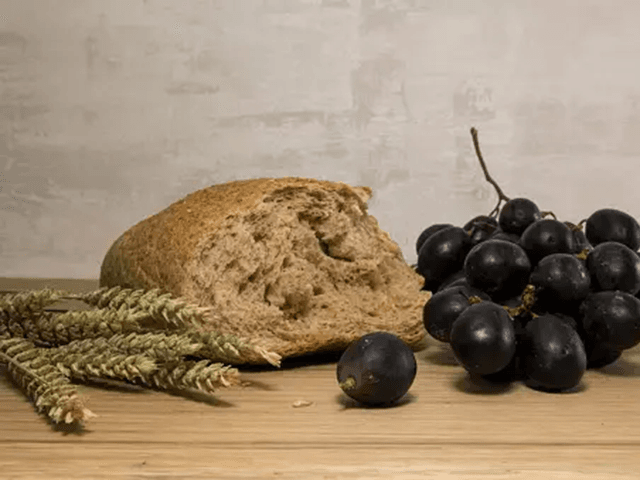
A Eucharistic Revival is underway in the United States Catholic Church, with congresses, processions, pilgrimages, holy hours, and more. This is “a movement to restore understanding of and devotion to” Jesus in the Eucharist, according to the National Eucharistic Revival website. These are fine actions taking place around the country.
Our Laudato Sí Platform Committee has a suggestion to offer: A conversation between Eucharist and Laudato Sí.
Because of the importance and timeliness of the Eucharistic Revival it is vital that we draw from the depths of wisdom and understanding that our Catholic tradition offers. Here we experience the energy and relevance to explore the full richness of this Eucharistic mystery.
A conversation between Eucharist and Laudato Sí offers an opportunity to tease out of each such wisdom and understanding in a way that offers transformational possibilities.
Drawing from the wisdom of the tradition and from articles presented on the encyclical this past year it will be important to consider three concepts as we engage in this conversation.
1. Sacrament/The Principle of Sacramentality
Catholics believe that God became flesh in Jesus, and is present and revelatory in human beings, in human experience, and in all creation. (Incarnation)
Laudato Sí #235: The Sacraments are a privileged way in which nature is taken up by God to become a means of mediating supernatural life. Through our worship of God, we are invited to embrace the world on a different plane. Water, oil, fire, and colors are taken up in all their symbolic power and incorporated in our act of worship. The hand that blesses is an instrument of God’s love and a reflection of the closeness of Jesus Christ, who came to accompany us on the journey of life…. Encountering God does not mean fleeing from this world or turning our back on nature.
Eucharist: Remembering the institution of the Lord’s Supper and the action of a meal being shared, we celebrate in continuity with that. “The intimacy of the eucharistic meal is obviously about the sacramental presence of Christ drawing near… but it is also about real bread and real wine, which began as wheat and water and grapes, and which nourishes and becomes part of us as all our food does.” (An Ecological approach to Holy Week by Daniel P Horan)
2. Integral Ecology
Everything is interconnected—a study in relationships.
Past articles presented by the Platform Committee have highlighted this major contribution of Laudato Sí. A Eucharistic Ecology can now be added to Human and Natural Ecologies, with the challenge to integrate this additional dimension.
A Eucharistic Ecology contributes:
- A relational or communal expectation
- An awareness of and deep appreciation of “all as gift”
- A profound sense of gratitude which bursts out in praise.
3. Transformation
Pope Francis has repeatedly expressed the need for us to not only change the way we live but to also change who we are.
Francis addresses this in Laudato Sí. In his reflections on Eucharist, he writes.
#236: It is in the Eucharist that all that has been created finds its greatest exaltation. Grace, which tends to manifest itself tangibly, found unsurpassable expression when God became human and gave Godself as food for God’s creatures. The Lord, in the culmination of the mystery of the Incarnation, chose to reach our intimate depths through a fragment of matter. God comes not from above, but from within, that we might find God in this world of ours…. Joined to the incarnate Son, present in the Eucharist, the whole cosmos gives thanks to God. Indeed the Eucharist is itself an act of cosmic love…. The Eucharist joined heaven and earth; it embraces and penetrates all creation. The world which came forth from God’s hands returns to God in blessed and undivided adoration: in the bread of the Eucharist, “creation is projected towards divinization, toward the holy feast, toward unification with the Creator.”
What a joy! Praise God!
In future articles we will explore separately these three concepts.
Suggested actions:
Re-read the articles posted by the Platform Committee through this past year.
Participate attentively and fully in a celebration of the Eucharist.
--Note the words prayed in the Eucharistic Prayers.
--Identify the threecontributions of a Eucharistic Ecology.
